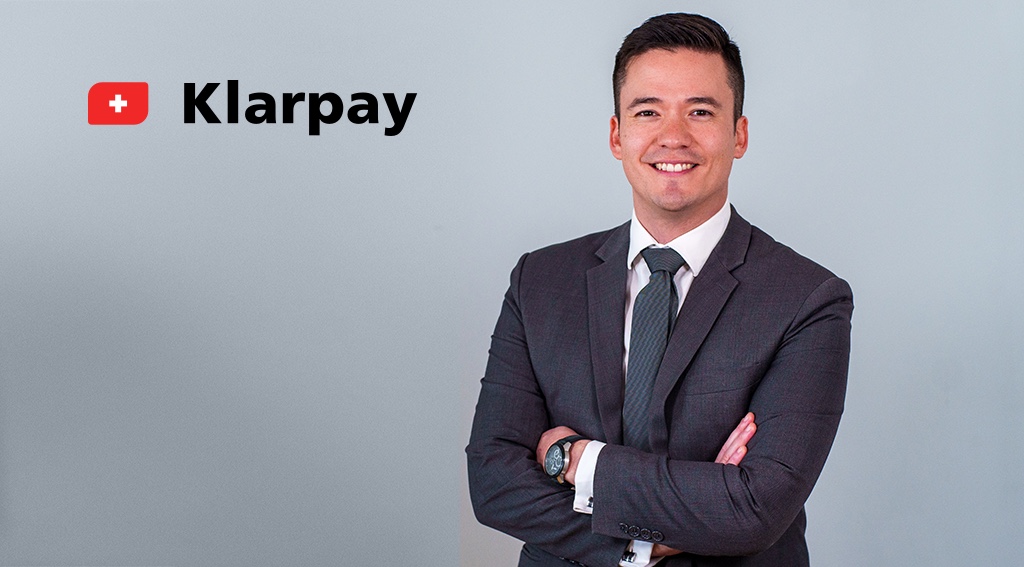fintechview sat down with Marc Evans, Chief Operating Officer of Swiss-licensed fintech Klarpay AG, to discuss the company’s emergence in virtual banking. Marc shares his views on the several factors have propelled the evolution of virtual banking and how this is different from traditional banks, as well as the future of paytech.
Could you share your thoughts on virtual banking and how it differs from internet or e-banking?
The terms, at first glance, appear synonymous. However, the distinction can have a significant impact on the services offered. E-banking is an internet-based option offered by regular banks as part of their efforts to digitise their customer experience.
Customers can view their account balance, transaction history, and send and receive money over the internet. However, the issue is that these online portals are built upon the bank’s legacy infrastructure, and it’s a huge undertaking for these banks to modernise their underlying systems. I know of cases where banks embarked on changing or updating their core systems only to abandon these projects mid-flight. The result being that the client is left with the same inefficient and limited experience.
A virtual bank has no physical branches and handles all transactions via the internet, email, ATMs, and mobile check deposits. Meanwhile, in virtual banking, all transactions are handled online. In Klarpay’s case, our transactional banking services are provided using our proprietary systems that enable rapid adaptation.
What are the challenges the emerging e-commerce and fintech market is facing with regard to payments, and how does Klarpay’s offerings compare to traditional institutions?
Traditional banking institutions have yet to match up to the fast-paced nature of e-commerce today. As a result, their clients face challenges in payments reconciliation and inefficient cross-border payment options leading to issues and delays in processing transactions.
At Klarpay, we’ve tailored our products to solve these challenges. We understand that businesses without standardised payment solutions have incurred severe losses, lower customer retention, and even sometimes faced legal liabilities.
With Klarpay’s virtual IBANs, businesses can assign IBANs to individual customers or suppliers to help simplify payment reconciliations, eliminate delays or mix-ups, and improve customer experience.
Likewise, Klarpay’s payments API is designed to seamlessly integrate into any e-commerce system, making it easy to pay employees, suppliers, and customers. Businesses can also bring our solution into their own ecosystem, eliminating the need for back-office personnel to copy payment details, check payment statuses, and match transactions between systems.
Our cross-border international payment options are optimised, enabling fast and secure global transfers in over 90 countries and 70+ currencies. Online businesses will also benefit from our virtual debit cards for online or in-store payments via Google Pay or Apple Pay.
What is your opinion on the future of paytech, and how is Klarpay preparing for it?
Paytech is evolving at a rapid rate. We’ve seen a monumental shift in consumer behaviour and preferences, with transactions going from offline to online and financial institutions and companies evolving from brick-and-mortar to virtual. From the advances we’re seeing today, it’s clear that the future will be characterised by an omnichannel experience where customers can seamlessly switch between payment methods.
Whilst Klarpay is a new player in the industry, we’re familiar with the multitude of innovations in the payments space and their potential for our product offerings. Our strength lies in our agility and the ability to develop solutions that ensure continuous business growth, sustainability, and success for all stakeholders
Who is Who
Marc Evans, is the Chief Operating Officer and Deputy CFO of Swiss-licensed fintech Klarpay AG.
Marc joined Klarpay following a 12-year career in the fintech and financial services industry. Marc commenced his career in the financial services industry as an External Auditor for Mazars back in 2010. After becoming an Associate Chartered Accountant with the Institute of Chartered Accountants in England and Wales, he went on to join the Nationwide Building Society in 2014, where he worked in the Financial Reporting and Capital Management departments. In his most recent role as Group Chief Financial Officer at BDSwiss, Evans gained significant experience in managing all aspects of the Finance and Reconciliation departments, as well as in actively supporting the company’s Back Office, Payments, and Compliance teams.

